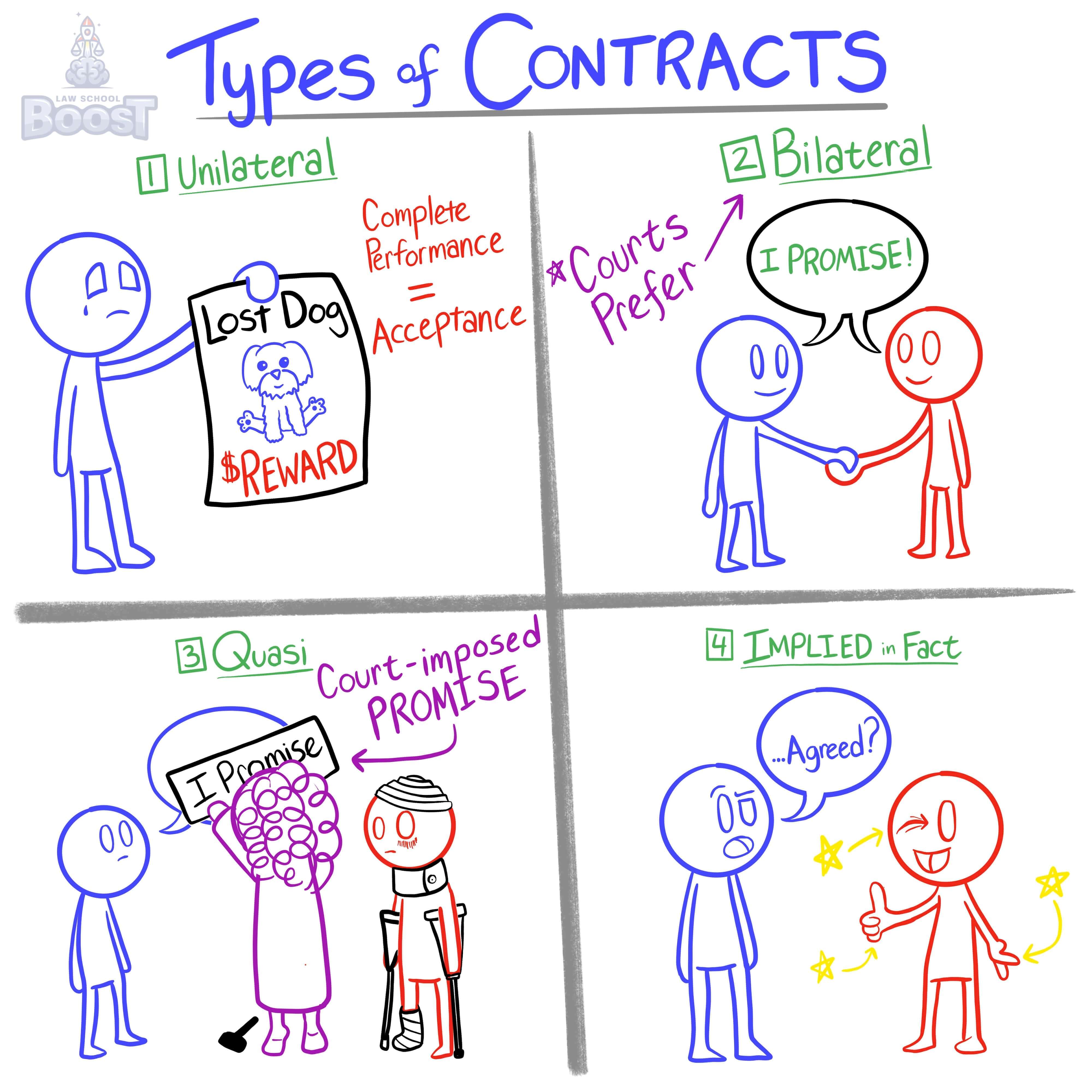🤔
Contracts • Types of Contracts
K#001
Legal Definition
Unilateral contracts are offers that expressly require complete performance as the only possible method of acceptance. Common examples are rewards, prizes, or contests.
Plain English Explanation
Unilateral contracts are not as common as bilateral contracts, so let's first start with understanding a bilateral contract. Bilateral contracts involve the exchange of "a promise for a promise." Basically, you have one party promise to do something in exchange for another party promising to do something. For example, you may promise to sell someone your car for $5,000, and someone may promise to pay you $5,000 for your car, but when and how you actually exchange the two things can vary.
In contrast, unilateral contracts involve the exchange of a single promise for an act. In other words, a unilateral contract demands action from the accepting party. Some sort of performance in order to trigger the existence of a contract, and bind the offeror.
In contrast, unilateral contracts involve the exchange of a single promise for an act. In other words, a unilateral contract demands action from the accepting party. Some sort of performance in order to trigger the existence of a contract, and bind the offeror.
Hypothetical
Hypo 1: Sam lost his dog. One day, he tells Bob and Amy, "I will pay $100 to whoever finds my dog." Bob quickly says, "Dibs!" Amy silently walks out of the house. Hours later, Amy returns with Sam's dog. Sam is ecstatic. Bob is outraged. Bob says, "I called dibs first!" Result: Dibs don't matter. Sam's offer was a unilateral contract that could only be accepted by the performance of bringing back his dog. Amy may have been silent, but she was the person who accepted by bringing back Sam's dog.
Let's change things up a bit. Imagine if Sam instead said, "Bob, I will pay you $100 if you go look for my dog." and Bob said, "Agreed." If Amy then came back with the dog, Sam would owe her nothing. His agreement was with Bob, not Amy.
Let's change things up a bit. Imagine if Sam instead said, "Bob, I will pay you $100 if you go look for my dog." and Bob said, "Agreed." If Amy then came back with the dog, Sam would owe her nothing. His agreement was with Bob, not Amy.
Visual Aids




